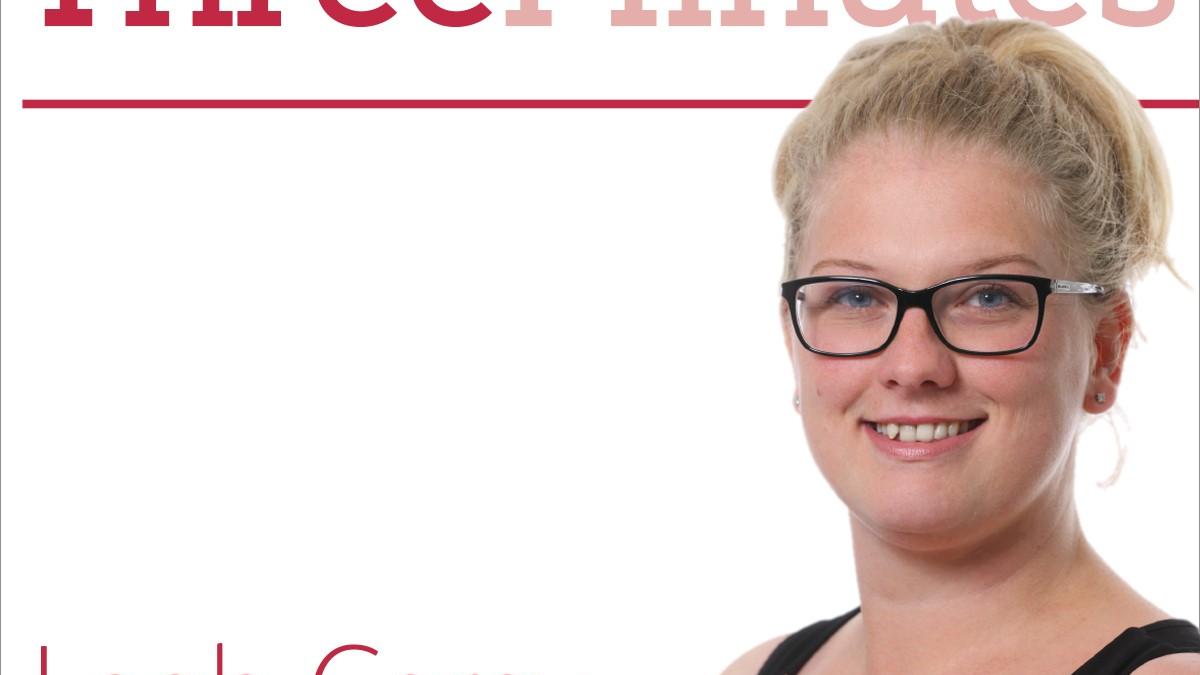Leah Carey believes her physiotherapy background left her ideally suited to step away from clinical practice for an exciting role in a clinical commissioning group.

Why did you switch to a non-clinical role?
I was working in the intensive therapy unit and in cardiothoracics at the Royal Brompton Hospital in London. I was lucky enough to be involved in quality improvement projects and writing consensus statements and national guidelines, which I really enjoyed. Then I moved to south west England and applied for a job as service redesign and improvement manager with Gloucestershire Clinical Commissing Group. I didn’t really expect to get it but it transpired that my physio career had prepared me well. I had a real-life example and answer for every question at the interview, and sometimes more than one. I occasionally miss working with people but reassure myself that I am now influencing lots of people, not just the patient in front of me.
How are you involved in STP work?
I am programme lead for respiratory services, a priority area within Gloucestershire sustainability and transformation partnership (STP). My programme covers transforming all respiratory services and involves leading and managing projects, and working with stakeholders across the STP. We report to one of the key enabling STP boards: the clinical programmes board, chaired by the acute trust’s chief executive. I also sit on Gloucestershire STP’s rehab steering group, which brings together allied health professionals (AHPs) from all organisations.
How can physios get involved with their STP?
First, find out what the STP priorities are in your area. Get hold of the STP plan and try to understand where the focus and need for change is. Often these have evolved from external benchmarking exercises. Once you know how your area is performing you can start thinking about what needs to be reviewed and how physios could help with solutions.
I would encourage meeting up with people already involved in STPs to find out about their role and their analysis of what is happening. AHPs are good problem-solvers and there are lots of AHP-based solutions to some current healthcare issues. We have struggled to recruit new medical staff, for instance, so are exploring AHP and advanced nurse practitioner-led services.
Any other examples?
In Gloucestershire, several physios have moved into non-clinical roles to support service development and STP plans. It is something we are very proud of and it also means we are sitting at the right table to offer solutions to problems. We also have several key projects where physiotherapists are at the forefront of delivering new models of care – for example, advanced practitioner physiotherapists in primary care for first point of access in musculoskeletal care. In the respiratory world, we are in the process of integrating acute and community specialist teams. As part of this, we are exploring having AHPs and nurses as the first point of access, rather than consultants.
Has your physio background helped?
A clinical background is a huge bonus in the transformation world. My experience gives me an insight and understanding that those without it don’t have. It also means I really understand clinicians’ opinions and stances on certain topics. I’m also the first person to ask for the evidence when we are discussing new solutions and models of care. My ability to critique research is helpful. In terms of project and programme management, physios have problem-solving abilities that are second to none. We can look holistically at a problem and create or drive solutions.
Do you have support in the role?
I have several mentors. One is a clinical contact, another is more operational. My mentors enable me to reflect on situations and really help my critical thinking. I also work in a very supportive team. We are all trying to do the right thing for the local population – which includes most of us and our loved ones.
- Leah Carey is STP transformation lead, Gloucestershire Clinical Commissioning Group
Author
Leah Carey STP transformation lead, Gloucestershire Clinical Commissioning Group
Number of subscribers: 2




































